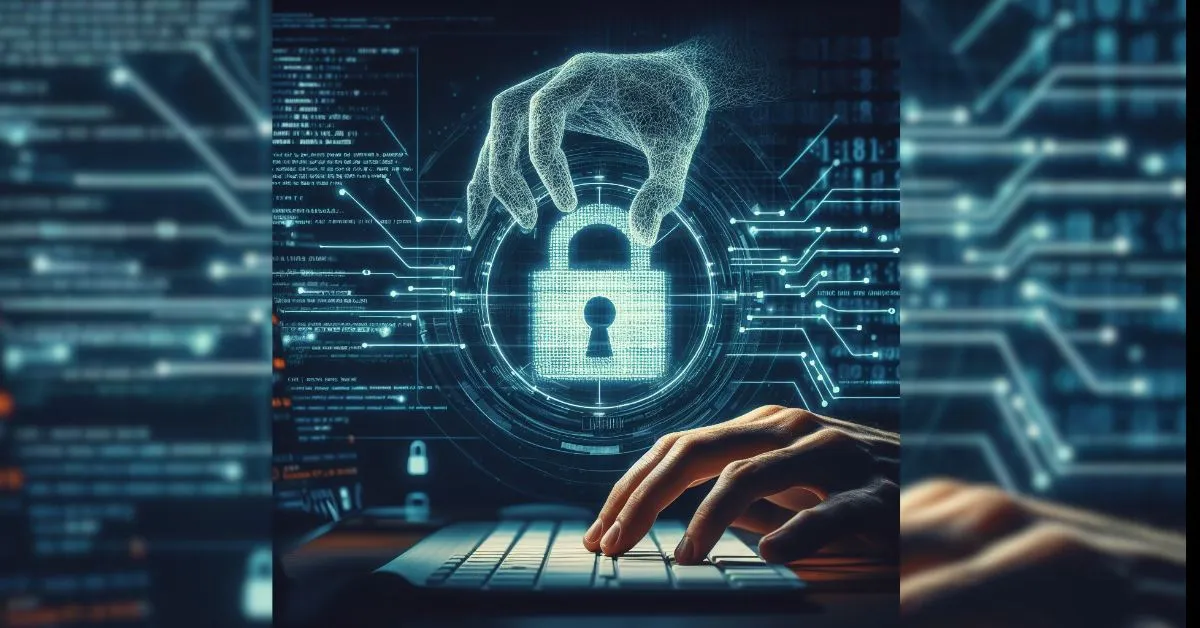- Understanding the Hacker’s Mind
- The Importance of Strong Passwords
- Two-Factor Authentication (2FA)
- Recognizing Phishing Attempts
- Secure Browsing and HTTPS
- Keeping Software Up to Date
- Social Media Privacy Settings Protect Personal Information
- Using Virtual Private Networks (VPNs)
- The Consequences of Data Breaches
- Cybersecurity for Personal Devices
- Conclusion
- FAQs
In an age where the digital realm plays an increasingly central role in our lives, the security of personal information is of paramount importance. The internet is a vast landscape, and just like any other environment, it has its share of threats. Hackers, with their skillful tactics and malicious intent, pose a significant risk to our personal data. In this comprehensive guide, we will explore the strategies and best practices to safeguard your personal information from online threats.
Understanding the Hacker’s Mind
To protect ourselves effectively, it’s essential to understand the methods hackers employ. They are constantly evolving, adapting, and finding new ways to breach security systems. We’ll delve into the psychology of hackers, exploring their motivations and the methods they employ to compromise personal information.
The Importance of Strong Passwords
One of the first lines of defense against hackers is the use of robust, unique passwords. We will discuss the art of creating strong passwords, employing techniques that are difficult for hackers to crack. Additionally, we will explore the benefits of password managers in maintaining a secure digital environment.
Two-Factor Authentication (2FA)
Two-factor authentication is a powerful tool that adds an extra layer of security to your accounts. We will explain how 2FA works and guide you through the process of enabling it on various online platforms, ensuring that your personal information remains inaccessible to unauthorized individuals.
Recognizing Phishing Attempts
Phishing is a common tactic employed by hackers. In this section, we will teach you how to recognize phishing attempts, whether through emails or deceptive websites. By identifying phishing efforts early, you can protect your personal data from falling into the wrong hands.
Secure Browsing and HTTPS
Safe online behavior includes recognizing the importance of secure browsing. We will shed light on the significance of HTTPS in website addresses and how it encrypts data, preventing hackers from intercepting information transmitted between your device and the server.
Keeping Software Up to Date
Outdated software can present vulnerabilities that hackers exploit. We will explain the importance of keeping your operating system, applications, and antivirus software up to date. Regular updates ensure that security patches are in place to protect your personal information.
Social Media Privacy Settings Protect Personal Information
With the rise of social media, protecting personal information has become more complex. We will guide you through adjusting privacy settings on various platforms, allowing you to share your life with friends and family while keeping sensitive information safe from prying eyes.
Using Virtual Private Networks (VPNs)
Virtual Private Networks, or VPNs, are an invaluable tool for protecting personal information. We will explore how VPNs work, their benefits, and how to select the right VPN service to maintain your online privacy.
The Consequences of Data Breaches
To emphasize the importance of online security, we will discuss real-world examples of data breaches and their consequences. Understanding the potential fallout from inadequate security measures serves as a compelling motivator to protect personal information.
Cybersecurity for Personal Devices
With our digital lives extending to multiple devices, we will provide guidance on securing personal computers, smartphones, and other devices. By following best practices, you can ensure that all your digital assets remain safeguarded.
Conclusion
Protecting personal information from hackers is not a one-time effort but an ongoing commitment. In this age of digital connectivity, implementing the strategies and practices discussed here will fortify your online security. By understanding the hacker’s mindset, employing robust passwords, embracing two-factor authentication, recognizing phishing attempts, securing your browsing, and keeping software up to date, you can significantly reduce the risk of personal data breaches.
FAQs
1. What motivates hackers to target personal information?
Hackers may be driven by financial gain, personal vendettas, or the thrill of breaching security systems. Understanding their motivations helps in devising countermeasures.
2. How do I create a strong and memorable password?
Creating strong passwords involves a combination of letters, numbers, and symbols. It’s advisable to use phrases or combinations that are easy for you to remember but challenging for others to guess.
3. Are password managers safe to use?
Password managers are secure and encrypted, making them a reliable choice for storing passwords. However, it’s essential to choose a reputable one and secure the master password.
4. What is the best way to recognize phishing attempts?
Phishing emails and websites often contain spelling errors, generic greetings, and suspicious links. Be cautious and verify the source before taking any action.
5. Why is keeping software up to date crucial for online security?
Hackers may be able to take advantage of known flaws in outdated software. Regular updates ensure that these vulnerabilities are patched, enhancing security.
Remember that your online security is an ongoing process, and staying informed about the latest threats and protection methods is vital in keeping your personal information safe from hackers.



